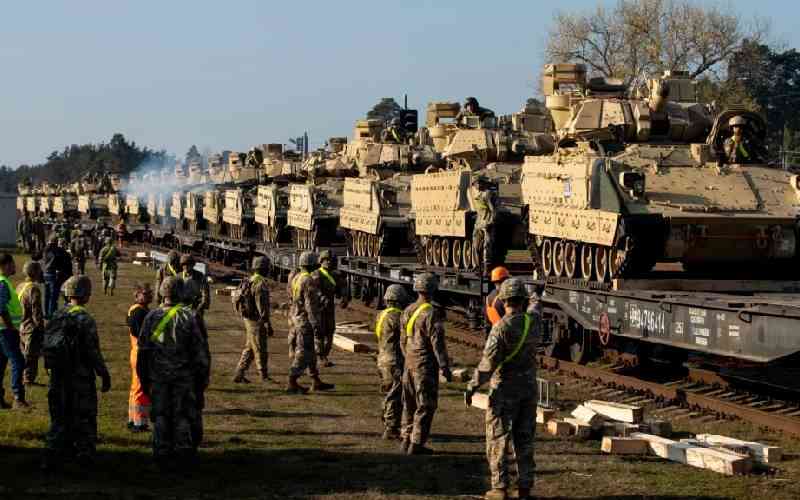×
The Standard e-Paper
Stay Informed, Even Offline

U.S. soldiers prepare to unload Bradley Infantry Fighting Vehicles from rail cars as they arrive at the Pabrade railway station near Vilnius, Lithuania, Oct. 21, 2019. [File]
The United States announced Friday a new package of military aid for Ukraine that totals about $400 million, Secretary of State Antony Blinken said.